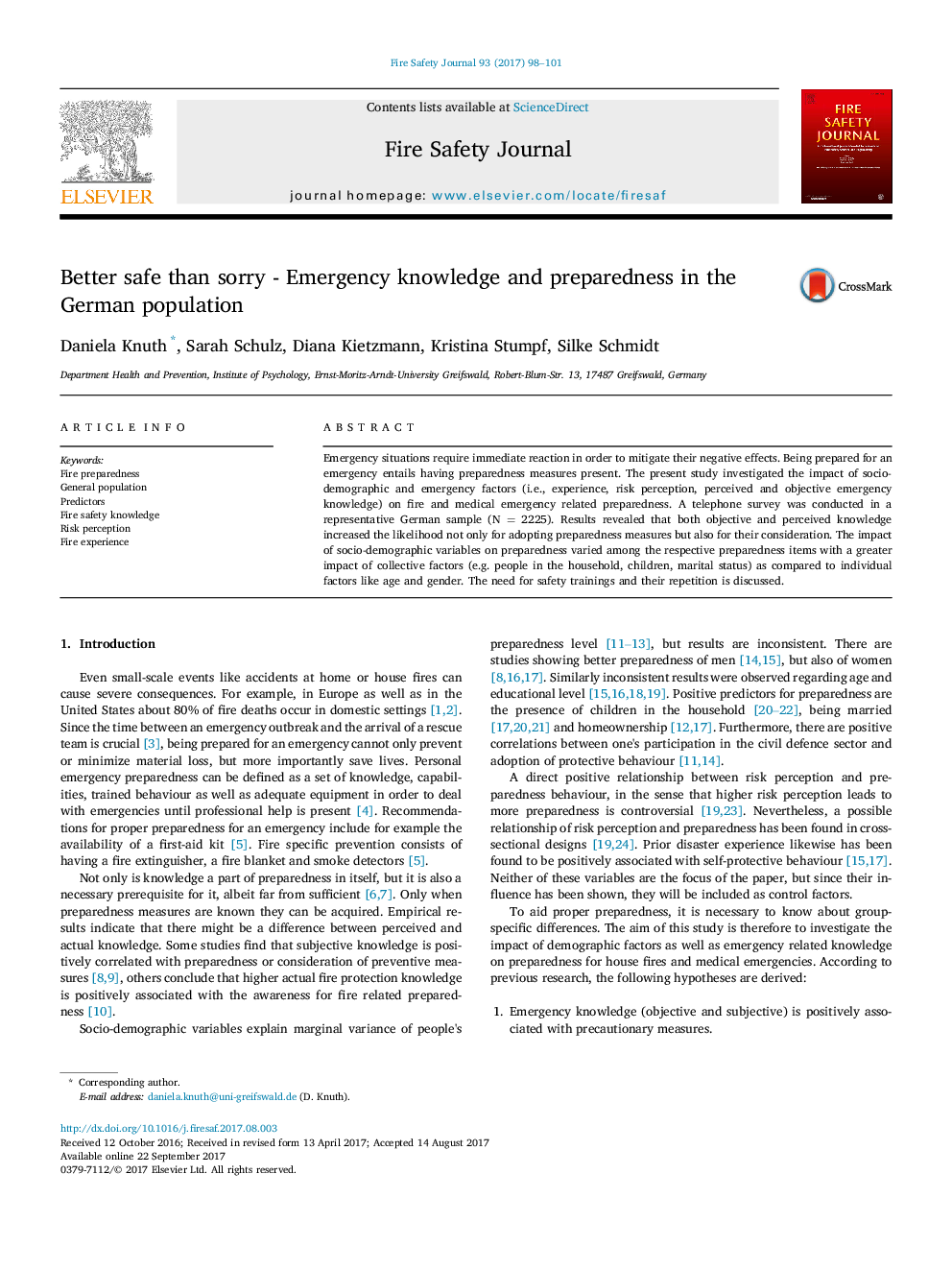| Article ID | Journal | Published Year | Pages | File Type |
|---|---|---|---|---|
| 4920823 | Fire Safety Journal | 2017 | 4 Pages |
Abstract
Emergency situations require immediate reaction in order to mitigate their negative effects. Being prepared for an emergency entails having preparedness measures present. The present study investigated the impact of socio-demographic and emergency factors (i.e., experience, risk perception, perceived and objective emergency knowledge) on fire and medical emergency related preparedness. A telephone survey was conducted in a representative German sample (NÂ =Â 2225). Results revealed that both objective and perceived knowledge increased the likelihood not only for adopting preparedness measures but also for their consideration. The impact of socio-demographic variables on preparedness varied among the respective preparedness items with a greater impact of collective factors (e.g. people in the household, children, marital status) as compared to individual factors like age and gender. The need for safety trainings and their repetition is discussed.
Related Topics
Physical Sciences and Engineering
Engineering
Civil and Structural Engineering
Authors
Daniela Knuth, Sarah Schulz, Diana Kietzmann, Kristina Stumpf, Silke Schmidt,
